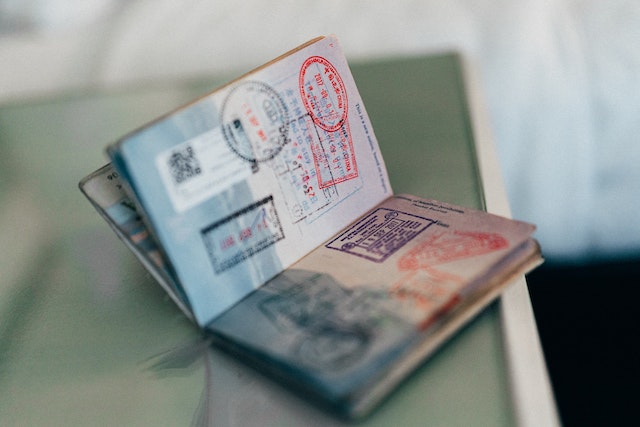It is naturally disheartening to find out that your UK Visa application has been refused. However, there are a number of ways you can appeal the decision – so do not feel that all is lost.
There are a number of potential reasons for your visa application being refused and several ways to appeal the decision, largely based on the type of application you submitted. This may seem complicated to navigate, which is why we’ve put together this blog post to tell you everything you need to know.
Common Reasons for Refusal

Before we delve into the options available to you once your visa application has been refused, it’s important to look at the reason why your claim was rejected in the first place. Understanding this from the outset will help you prepare for any appeal that may happen and boost your chances of success.
With this in mind, here are some of the most common reasons why your visa application may have been refused:
Documentation
Probably the most common reason a visa application will be refused is down to the documents you submitted as part of your claim. Potential issues could be the omission of certain paperwork or errors therein.
It’s essential that when applying for a visa, your supporting evidence is accurate and contains no mistakes. With so many applications to review, the Home Office is only going to grant your request if you have everything in order.
Incorrect Advice
Another potential reason for your visa application being refused is because you followed poor advice. Immigration is an extremely complicated topic to navigate, so it is essential that you get the right information.
Having a specialist immigration solicitor in your corner will mean that you are receiving the highest-quality support – along with expert guidance throughout the process.
Wrong Type of Application
This may seem like something that’s easily avoided, but it is actually common for people to submit the incorrect type of visa application. It may be down to misunderstanding the process, or because the applicant did not receive the right advice. Whatever the reason, a visa application made under the wrong category will not be accepted.
Hiding the Past
When assessing your application, the Home Office will delve into your background to see if there are any reasons why your visa should be denied. Potential red flags could be a previous overstay or other immigration offences.
If the applicant failed to declare any of this in their submissions, it will instantly be refused. It’s therefore essential that you are totally honest when completing your application, so the Home Office can assess your claim on merit.
It’s important to understand that this is not an exhaustive list and there may be another reason why your visa application has been refused. Therefore, it’s essential that you seek out professional and reliable legal advice as soon as possible.
What Type of Application was Submitted?

As mentioned earlier, the course of action you’re able to take if your visa application has been refused largely depends on the type of claim you made in the first place. In most situations, your right to appeal the decision will be as follows:
- Points Based System (PBS): Applications made under this system (such as Tier 1, Tier 2, Tier 4 and Tier 5) can only be appealed by an Administrative Review.
- Human Rights and Protection: If you’ve been refused for this type of claim, you’ll be afforded full right to appeal. Some rights of appeal may be “certified”, meaning they can only be carried out after you’ve left the UK.
- Applications Under EEC Regulation: Your rights with these types of applications are the same as Human Rights and Protection claims.
- Visitor Visa/Short-Term Student Visa: There is usually no right to appeal an application of this nature.
Other potential courses of action include reconsideration or a Judicial Review. The former is only possible for certain types of leave to remain applications, while the latter can solely be used if there are errors in the decision and you’ve not been granted the right to appeal.
Appealing Visa Refusals

If your visa application has been refused with the right to appeal, you can challenge the decision with the immigration tribunal. If you’re living inside the UK at the time of refusal, you will usually have 14 calendar days to launch your case. Should you happen to be outside the UK, the timeframe is 28 days.
You will also have received a breakdown of why your application was declined in your refusal letter. It’s important that you fully understand why the decision was taken and are able to formulate a comprehensive case to launch a challenge. If you do not prepare well enough, your appeal will likely fail.
This is yet another example of why you need specialist advice. An experienced immigration solicitor will be able to fully examine your case and determine whether or not you should proceed – potentially saving you a lot of money and hassle. If they believe you have valid grounds to appeal, your solicitor will represent and guide you every step of the way.
Ways to Appeal

Once it’s been determined that you have sufficient grounds to challenge your visa refusal, there are three courses of action you can take. Here are the different options available to you:
- Proceed with the Appeal: This is probably the choice you’ll consider first. As mentioned above, it’s essential that you thoroughly understand why your application was refused and build a solid case to challenge the decision
- Reapply: Another course of action you could take is to assess the reasons for refusal and simply apply for your visa again – taking care to address why your first application was refused. This may actually be more time and cost-efficient than going through the full appeals process. In some cases you may be allowed to reapply and appeal simultaneously.
- Overturn the Decision: Your final option is to attempt to overturn the refusal before submitting an appeal. This is by far the most difficult course of action to take and should only be attempted in cases where the immigration office has made a glaring error. Your success may also depend on how quick you attempt to reverse the decision, as you may have less time than the standard deadlines to put your case together.
Building Your Case

If you’ve decided to appeal the decision, your next step is to build a solid defence. This will usually include the following:
- Carrying out a full assessment of your appeal documents
- Drafting grounds of appeal to the First Tier Tribunal
- Obtaining witness statements
- Completing the appeals form
- Compiling an appeal bundle
Once this has been done, your appeal will be lodged with the Immigration Tribunal and served on the Home Office. It will then be reviewed before a hearing is scheduled.
As we’ve said many times before, it’s absolutely essential that you thoroughly research and build your case. This is because a well planned out defence quite often leads to the refusal being overturned at the review stage, without even needing to progress to a full hearing.
What if I Have No Right to Appeal?

If your visa application has been refused and you have not been given the right to appeal, you would be forgiven for feeling that you’ve reached the end of the road. In reality, this is not the case at all.
Should your request have been denied for justifiable reasons, and you have now addressed the issues raised, you are able to reapply for a visa and have your case considered again. Once again, it’s essential that you get the right support from an experienced immigration solicitor, as they will be able to assess your situation and determine whether you have a good chance of success the second time around.
Expert Support is Essential

As we’ve mentioned throughout the blog, it is imperative that you seek out specialist advice if your visa application has been refused. Appealing the decision can be extremely expensive and time-consuming, so you need to give yourself the best chance of success.
At Shams Williams, we have a team of expert immigration solicitors who will be more than happy to guide you all the way through the process and provide essential information at every turn. We will take the time to understand your individual circumstances and conduct a thorough review of your case, before deciding on the best course of action for you to take.






